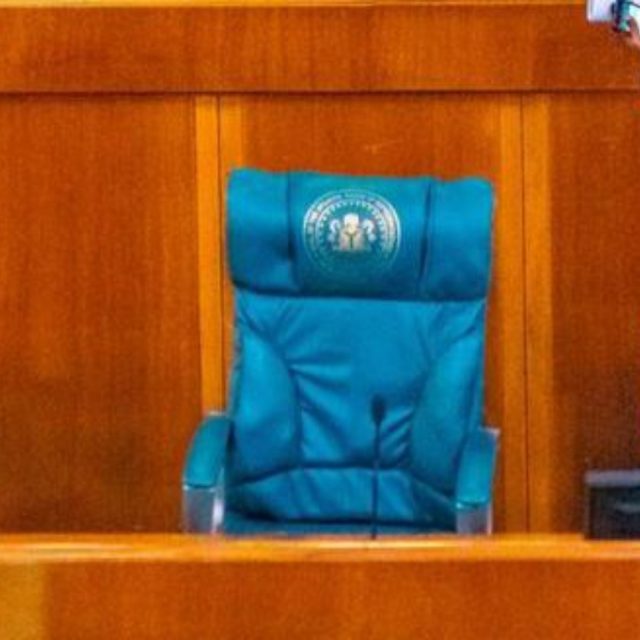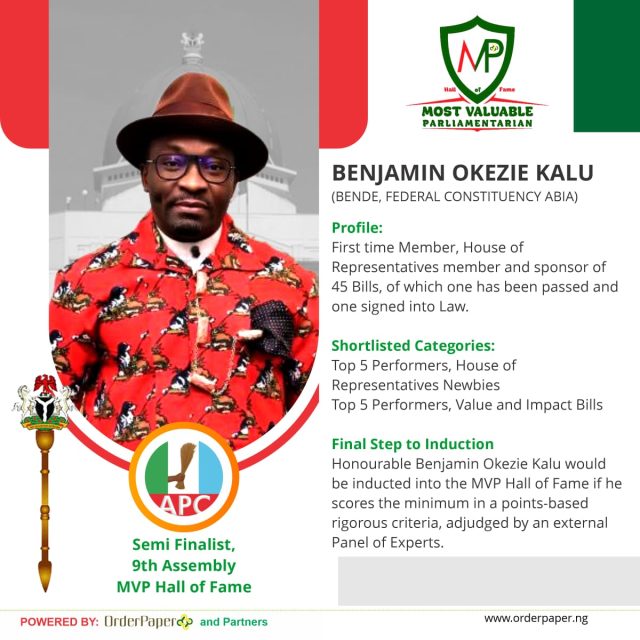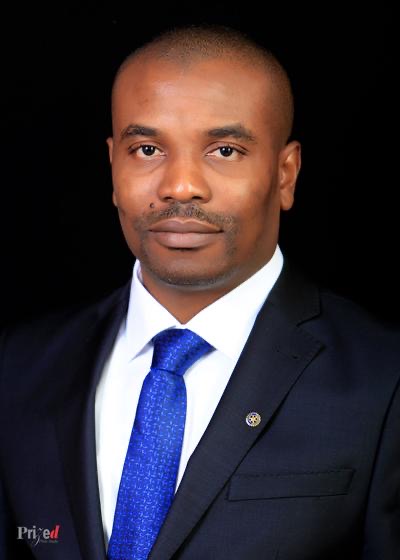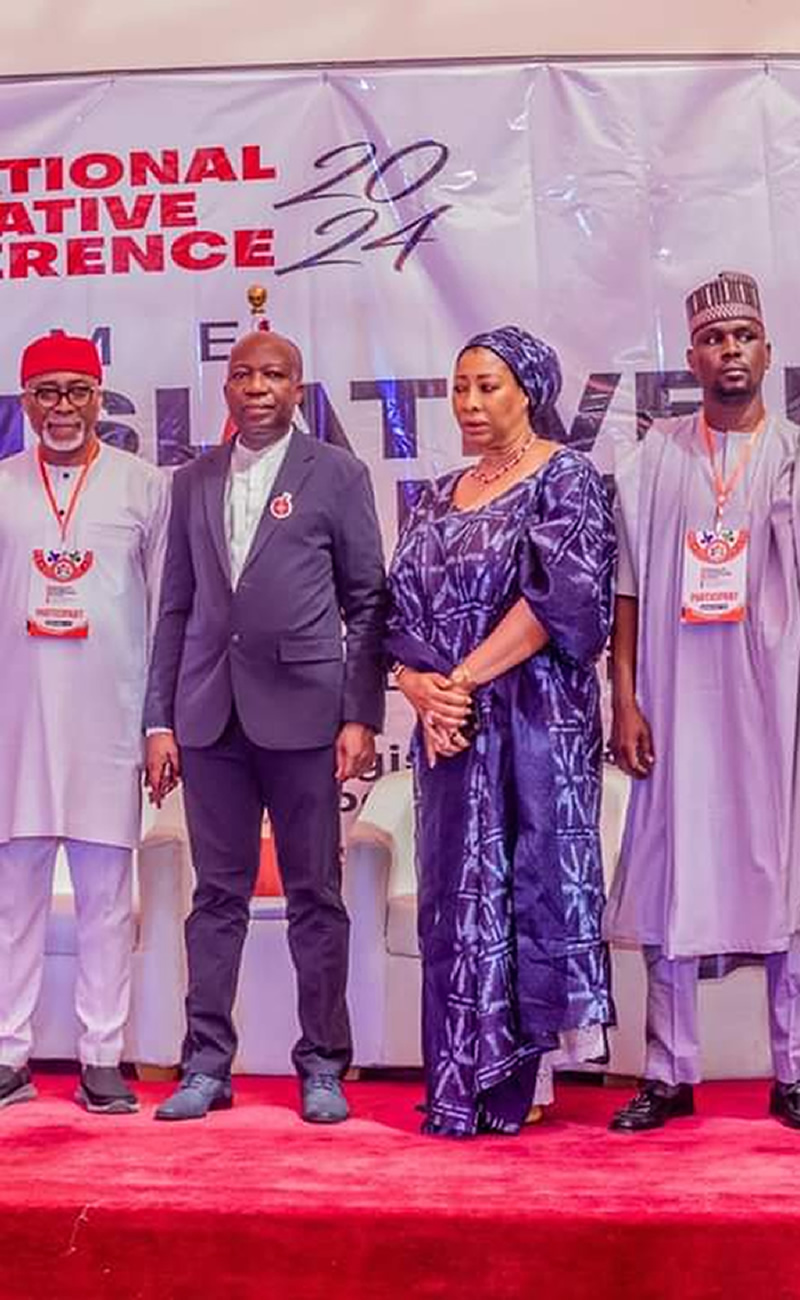With no fewer than eleven candidates eyeing the seat of Speaker in the Tenth House of Representatives, this opinion piece examines the merit of competence and capacity as key considerations in the imminent leadership recruitment process.
By Abel Atanda
READ ALSO: 10TH NASS: Reps Minority Caucus working to produce House Leadership

Nigeria is Africa’s largest democracy and has remained so since its return to civil rule on 29th May 1999. This is especially because of the restoration of its three-tier legislature as an arm of government and an integral feature in the 1999 Constitution of the Federal Republic of Nigeria (CFRN), as amended.
Although it is common knowledge that a Military system of government is an aberration, the absence of a legislature in such an arrangement further compounds its legitimacy as a product of popular sovereignty. It also raises questions about effective representation for the citizenry, all of which underscore the point about the institution of the legislature being a key feature of representative democracy.
For an evolving democracy like Nigeria’s, where institutions are yet to take deep roots, the twin subject of holding legislators to account and leadership recruitment for such crucial institutions are areas that must be taken seriously. Importantly, experiences from the Eight and Ninth National Assemblies further put an unprecedented spotlight on the federal parliament in Nigeria, especially if public perception of the institution is anything to look at.
In line, therefore, with its mandate to bridge the gap between people and parliament, OrderPaper Nigeria has, since the inauguration of the Ninth National Assembly, undertaken a rigorous and data-driven performance appraisal of the 469 members of the Senate and House of Representatives, respectively.
READ ALSO: 10th NASS Leadership: ED OrderPaper, speaks on deciding factors for Presiding Officers
This annual scorecard, amongst other goals, is geared at helping the citizenry make informed judgement about the performance of their lawmakers and impact of the Legislative Assembly. It has thus been a milestone activity that legislators and the public always looked out for since 2020 when the National Assembly clocked one.
It has been established that the core duties of legislators are lawmaking, oversight (of the executive) and representation. OrderPaper, in its wisdom, however, harnesses Bill sponsorship (lawmaking) as the most pivotal appraisal metric, considering that it presents a better scientific measurement than other core duties. In this light, the organisation goes further to appraise lawmakers on this basis of bill sponsorship using the Volume, Value, Impact and Productivity (VVIP) metric.
In the words of Senator Ibikunle Amosun, a two-time Governor of Ogun State and Chairman of the Senate Committee on Capital Markets, “I commend OrderPaper for its accurate reporting and tracking of legislative activities, as well as well as bridging the gap between the parliament and the constituents, particularly through an in-depth analysis of the Bills and Motions of legislators.”
By the mid-term of the outgoing Ninth National Assembly, fifty-five (55) of its members across both chambers stood out in the Second-year Appraisal of the federal parliament based on their performance in the first two years of the Assembly. They were thus recognised as nominees for possible induction into Nigeria’s first-ever Most Valuable Parliamentarian (MVP) Hall of Fame for the outgoing Assembly.
Nominees were unveiled for Top lawmakers on the Bills Productivity Index, Impact Of Bills Index (Cross-Cutting/Inter-Generational), Top Performer on Bills Sponsorship by Newbies, Female Lawmakers, Young Legislators, Geo-Political Zones, and Volume. Some of the deserving lawmakers recognised under this categories include Femi Gbajabiamila (APC, Lagos), Mohammed Tahir Monguno (APC, Borno), Uzoma Nkem Abonta (PDP, Abia), Benjamin Kalu (APC, Abia), Dachung Musa Bagos (PDP, Plateau), Yusuf Adamu Gagdi (APC, Plateau) amongst others.
While the recognition spurred a lot of legislators to take the core duty of lawmaking more seriously, only twenty (20) of the 469 federal lawmakers were able to put up impressive performances that will see them through to the Semi-finals of the MVP Hall of Fame.
Instituted by OrderPaper Nigeria and its partners, the MVP Hall of Fame is in furtherance of OrderPaper’s modest contributions to legislative strengthening and promotion of improved service delivery in the National Assembly. It identifies and is aimed at sustaining a distinct class of performance-driven legislators who are also excellence-inspired and public-spirited.
And as have been explained by the organisers, consideration for the MVP nomination and subsequent shortlisting essentially applied the Value, Impact, and Productivity criteria in rating those shortlisted contributions. Rt. Hon Ali Ahmad, former lawmaker and Professor of Constitutional Law and Legislative Studies put it succinctly when he said:
“I have served as a legislator at both the State and national levels. Without any iota of equivocation, I can say that the MVP Hall of Fame is a bold and unprecedented initiative. It will not only keep legislators on their toes to ensure higher levels of productivity and greater connection with citizens but also elevate the position of constituents as the ultimate bosses with powers to make objective performance appraisals and, consequently, hire and fire elected officials. I congratulate OrderPaper Nigeria and its partners on this milestone contribution to democratic growth and development.”
READ ALSO: MVP Hall of Fame: 20 National Assembly Members make Semi-Final shortlist
These semifinalists Samuel Ifeanyi Onuigbo (APC, Umuahia North/Umuahia South, Federal Constituency, Abia), Ezenwa Francis Onyewuchi (LP, Imo East Senatorial District), Ovie Augustine Omo-Agege (APC, Delta Central Senatorial District). Uba Sani (APC, Kaduna Central Senatorial District) and Benjamin Okezie Kalu (APC, Bende, Federal Constituency, Abia) were all nominated for being Top Performers, Value and Impact Bills.
Senators Uba Sani (APC, Kaduna Central Senatorial District), Ibrahim Yahaya Oloriegbe (APC, Kwara Central Senatorial District), Aishatu Dahiru Ahmed (APC, Adamawa-Central Senatorial District), Mohammed Sani Musa (APC, Niger East Senatorial District), Ovie Augustine Omo-Agege (APC, Delta Central Senatorial District) are also featured as Top Performers, Senate Productivity Index.
For Top Performers, House Of Representatives Productivity Index; Dan Agundi Munir Babba (APC, Kumbotso Federal Constituency, Kano), Uzoma Nkem Abonta (PDP, Ukwa East/Ukwa West, Federal Constituency, Abia), Fulata Abubakar Hassan (APC, Birniwa/Guri /Kiri Kasama, Federal Constituency, Jigawa), Mohammed Tahir Monguno (APC, Monguno /Nganzai/Marte, Federal Constituency, Borno) and Speaker Femi Gbajabiamila (APC, Surulere I, Federal Constituency, Lagos) were featured.
The list also features Top Performers, Senate Newbies – Mohammed Sani Musa (APC, Niger East Senatorial District), Uba Sani (APC, Kaduna Central Senatorial District), Orji Uzor Kalu (APC, Abia North Senatorial District), Micheal Opeyemi Bamidele (APC, Ekiti Central Senatorial District), and Ifeanyi Patrick Ubah (YPP, Anambra South Senatorial District)
Simon Davou Mwadkwon (PDP, Barkin Ladi /Riyom Federal Constituency, Plateau), Dachung Musa Bagos (PDP, Jos South/Jos East Federal Constituency, Plateau), Onofiok Luke Akpan (PDP, Etinan/Nsit Ibom / Nsit Ubium Federal Constituency, Akwa Ibom), Waive Ejiroghene Francis (APC, Ughelli North /Ughelli South/ Udu Federal Constituency, Delta), and Benjamin Okezie Kalu (APC, Bende, Federal Constituency, Abia) are Top Performers, House Of Representatives Newbies.
The organisers further note that these lawmakers who emerged across party lines from the Senate and House of Representatives would be subjected to a rigorous points-based scoring system to arrive at the eventual inductees into the Ninth National Assembly Hall of Fame.
READ ALSO: 10TH NASS: What the early signals indicate in race for Speakership
With about four weeks to the inauguration of the Tenth National Assembly, attention is on contenders in the race for leadership of both chambers of the federal parliament.
Compared to the last two Assemblies, zoning factors along the lines of region and religion are increasingly at the crux of conversations and arguments on influential considerations on who should get what, come June. A debate that is coming on the heels of the emergence of the President-Elect and Vice President-Elect under a same-faith ticket.
For those who share the above school of thought, their arguments are hinged on the subjects of federal character and national unity. Other arguments that have also been brought to the table include the campaign by members of the governing All Progressives Congress (APC) from the various geo-political zones for priority consideration on the basis of vote contributions to the party’s win at the Presidential election.
One must say that purveyors of these thoughts will hardly be oblivious to a possible plot twist in the Speakership of the House of Representatives contest. Indeed, the possibility of opposition parties in the Tenth House clinching the Speaker and Deputy Speaker seats, given their numbers reported to be sufficient to produce the leadership of the Chamber, must be treated as ‘real and kicking.’ Although the election management body is yet to release the official number of seats won by each of the eight parties that secured a place in the Tenth House.
Due to this factor, leaders and supporters of the APC argue that the governing party must consult widely before endorsing any of the eleven candidates aspiring for Speakership. While these arguments cannot be entirely dismissed, it is worthy of note that in an evolving democracy like Nigeria’s, where institutions are yet to take deep roots, leadership recruitment in parliament cannot be sacrificed on the altar of regional interests.
For an institution like the legislature, where experience is an asset, the metrics of competence and capacity measured especially by consistent performance in the core duty of lawmaking.
READ ALSO: Abia Reps; Kalu, Abonta, Onyejeocha, sponsored 35 bills or more | National Assembly Scorecard
Among the eleven Speakership candidates, Rep. Benjamin Okezie Kalu (APC, Bende Federal Constituency, Abia), Rep. Abbas Tajudeen (APC, Zaria Federal Constituency, Kaduna), and Yusuf Adamu Gagdi (APC, Pankshin/Kanam/Kanke Federal Constituency, Plateau) were featured prominently on the initial nominee list of lawmakers for Most Valuable Parliamentarian (MVP) at the midterm of the current Assembly (2019 – 2021).
While Rep Gagdi was only nominated among the Top 3 Performers on the Productivity Index, Rep Abbas secured four nominations. The Kaduna lawmaker with seventy-five (75) Bills was nominated among the Top Performer on Bills Sponsorship by Volume, Top Performer on Bills Sponsorship by Geo-Political Zone (North West) and Top 10 Performers based on Bills Productivity Index.
Rep Kalu, on the other hand, with forty-one (41) bills at Mid-term, was nominated as the Top Performer on Bills Sponsorship for Newbies in the House and as Top Performer on Bills Sponsorship by Geo-Political zone (South East). Only the Abia lawmaker, however, earned himself a spot in the Semifinals of the MVP Hall of Fame, securing double nomination among Top Performers, Value and Impact Bills and Top Performers, House Of Representatives Newbies.
Importantly, from 41 bills as of Midterm, the House Committee on Media and Public Affairs Chairman moved his bills tally to 45 by the end of the Third Year Appraisal; indicating a commitment to consistency and excellence. Interestingly, he also led the bills tally of all twelve lawmakers from Abia State at the federal parliament.
READ ALSO: Parliament Special: Nigeria’s 10th National Assembly and the ghost of 2015

Some major bills sponsored by the lawmaker include the Constitution of the Federal Republic of Nigeria, 1999 (Alteration) Bill, 2020, which has been signed into law by the President, the Export Prohibition Act (Repeal) Bill, 2019 passed by the House and transmitted to the Senate for concurrence.
The Constitution Alteration Bill titled ‘A Bill for an Act to alter the Second Schedule to the Constitution to remove Prisons from the Exclusive List; to Provide for the Establishment of Correctional Centres in the Concurrent List; and for related matters’ is aimed at ensuring both the Federal and State Governments share the burden of funding and administering the prisons, now known as correctional centres.
For the lawmaker, for Nigeria to succeed in the reform of its reformatory institutions, a deliberate and bold step towards building more of such centres has to be taken which informed his desire to see federating units become a part of the establishment and running of correctional facilities in their respective domains. He further argued that, “making the States share in the responsibility of funding the prison would help to check indiscriminate imprisonment of people for minor offences created by state laws.”
Other major pieces of legislation he facilitated are the Federal College of Education Bende (Establishment, etc.) Bill, 2020 which has been laid on the table.The Federal Capital Territory Education Resource Centre (Establishment) Bill, 2019 and the Federal University of Medical and Health Sciences, Bende (Establishment, Etc.) Bill, 2021 are awaiting report.
He also moved the first motion of the floor of the Ninth House of Representatives, upon which the Speaker Femi Gbajabiamila consummated the gavel for the Assembly.
As conversations, lobbying, and consultations on the leadership of the next Assembly continue, it is hoped that capacity exemplified by performance, the character of excellence and competence backed up by experience will play a key role in leadership recruitment. This will in no small way promote legislative strengthening and improved service delivery in the National Assembly.



